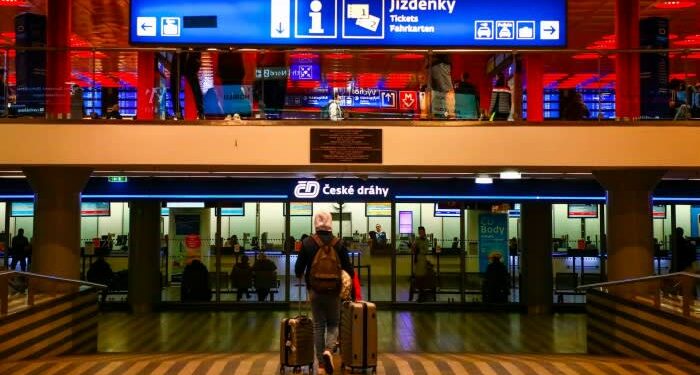Roula Khalaf, Editor of the FT, selects her favourite stories in this weekly newsletter.
Russia has made “thousands” of attempts to interfere with European rail networks in a campaign to destabilise the EU and sabotage critical infrastructure, the Czech Republic’s transport minister has said.
Martin Kupka told the Financial Times Moscow was suspected of having made “thousands of attempts to weaken our systems” since Russian President Vladimir Putin ordered the full-scale invasion of Ukraine in February 2022.
The hacking campaign included attacks on signalling systems and on the networks of the Czech national railway operator České dráhy, Kupka said. Past attacks have put ticketing systems out of service and raised concerns about successful interference with signals causing serious accidents.
“It’s definitely a difficult point . . .[but] I’m really very satisfied because we are able to defend all systems [from] a successful attack,” Kupka said.
Russian attempts to destabilise European energy infrastructure have been well documented but interference in transport networks has been less discussed.
The EU Agency for Cybersecurity published its first report on threats to transport in March last year. It said there had been “attacks against railway companies with an increasing rate, primarily due to Russia’s invasion of Ukraine”.
It noted major cyber attacks by “pro-Russia hacker groups” on railway companies in Latvia, Lithuania, Romania and Estonia.
The Czech cyber security agency, NUKIB, has warned of rising cyber attacks in recent years. “One of the last year’s prominent trends has been the growing interest of malicious attackers in the energy and transportation sectors,” it said in a report published in July.
České dráhy said it had “seen an increased number of cyber attacks on our digital infrastructure” and was “continuously strengthening” its cyber security.
Prague has become increasingly hawkish on Russian influence campaigns after it approved a law in 2022 that allows the government to take measures against foreign entities suspected of violating human rights or cyber crimes.
Last week the Czech government imposed sanctions on the Ukrainian oligarch Viktor Medvedchuk and his associate Artem Marchevskyi as well as the media outlet Voice of Europe, which the Czech foreign ministry said was responsible for operating “a Russian influence operation” on Medvedchuk’s behalf.
Kupka said the Czech Republic, which is planning the construction of a high-speed rail line that would link Berlin, Prague and Vienna in four hours, is also putting in place limits on the ability of foreign operators to bid in the tenders.
“It’s not something like a ban but we would prefer European companies . . . For digital parts and also for signalling systems, we have definitely demanded a limit [on foreign operators providing specific parts] because it is part of the critical infrastructure.”
Recommended
The minister spoke to the FT in Brussels where he was lobbying the EU to pledge more of its common budget to major transport infrastructure projects as the bloc’s ageing railway network struggles to cope with increasing demand.
“It’s about absolutely overloaded conventional operators” for freight in particular, Kupka said, warning it would potentially hurt the functioning of the EU’s single market.
The line is the first in a series of high-speed rail projects that are intended to ultimately link central Europe with Ukraine, Moldova and the western Balkans. Prague has estimated the cost of its part of the project to be about CZK1tn ($43bn).
Rail accounts for the majority of projects within the €25.8bn provided for transport by the EU’s Connecting Europe Facility. A Czech official said the costs of their new project already went beyond the country’s allocation from the fund.
This article has been amended to correct the estimated cost of the Czech project.
Source link : https://www.ft.com/content/f8207823-f5e1-4caf-934d-67c648f807bf
Author :
Publish date : 2024-04-04 07:00:00
Copyright for syndicated content belongs to the linked Source.


